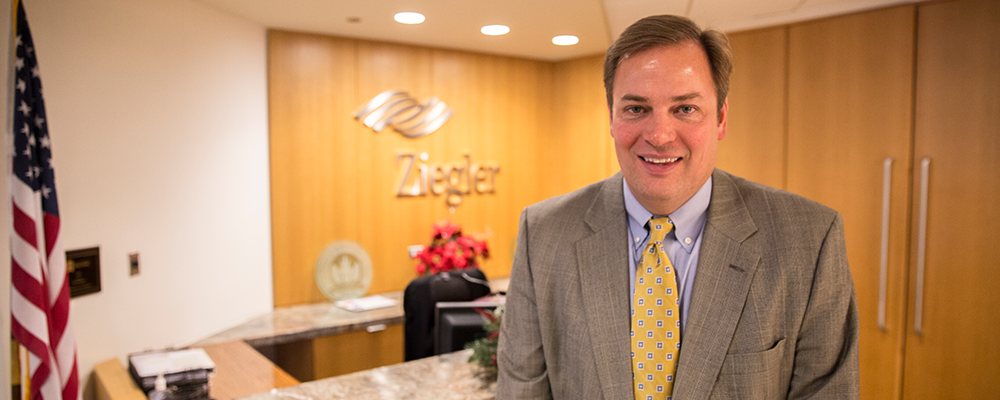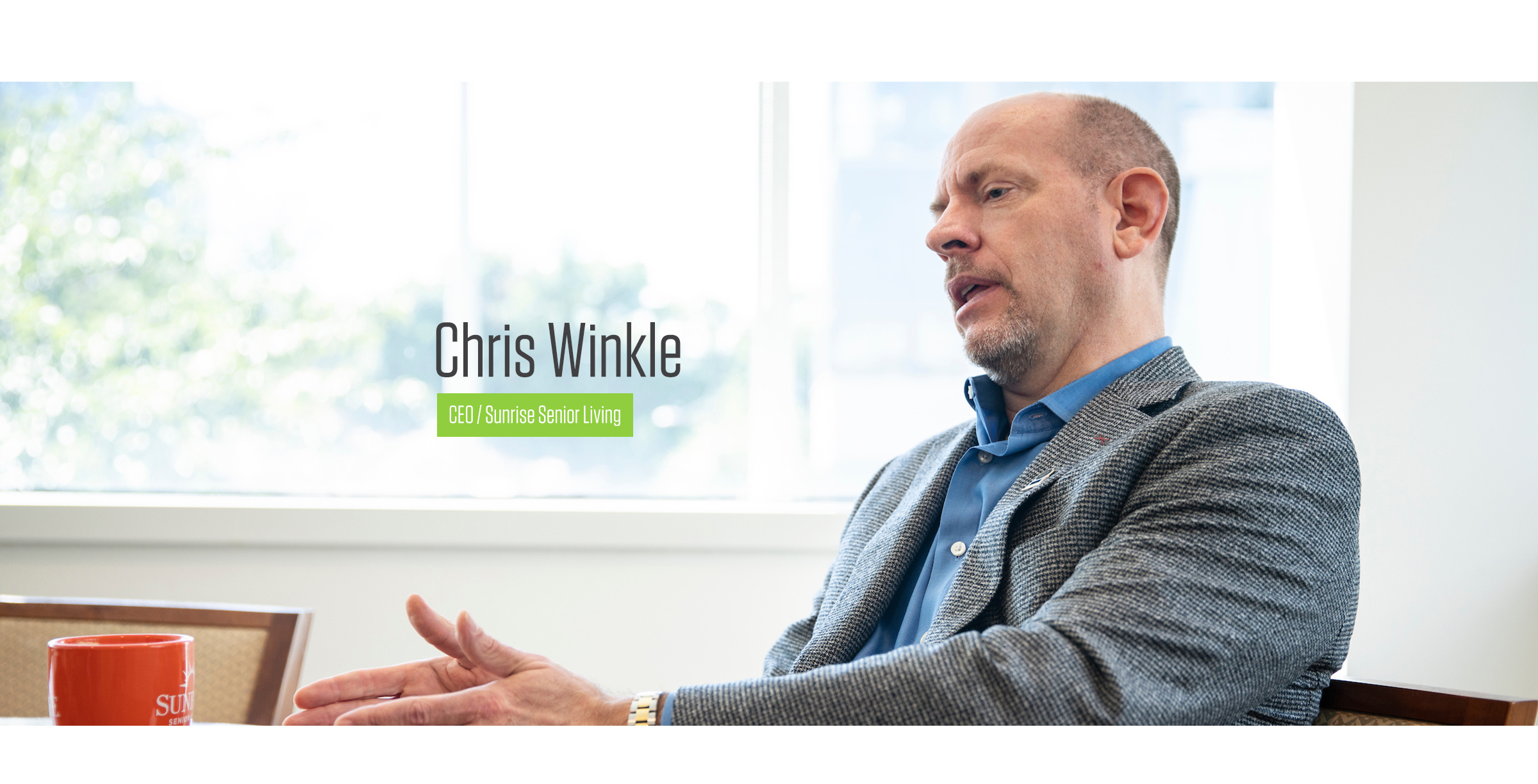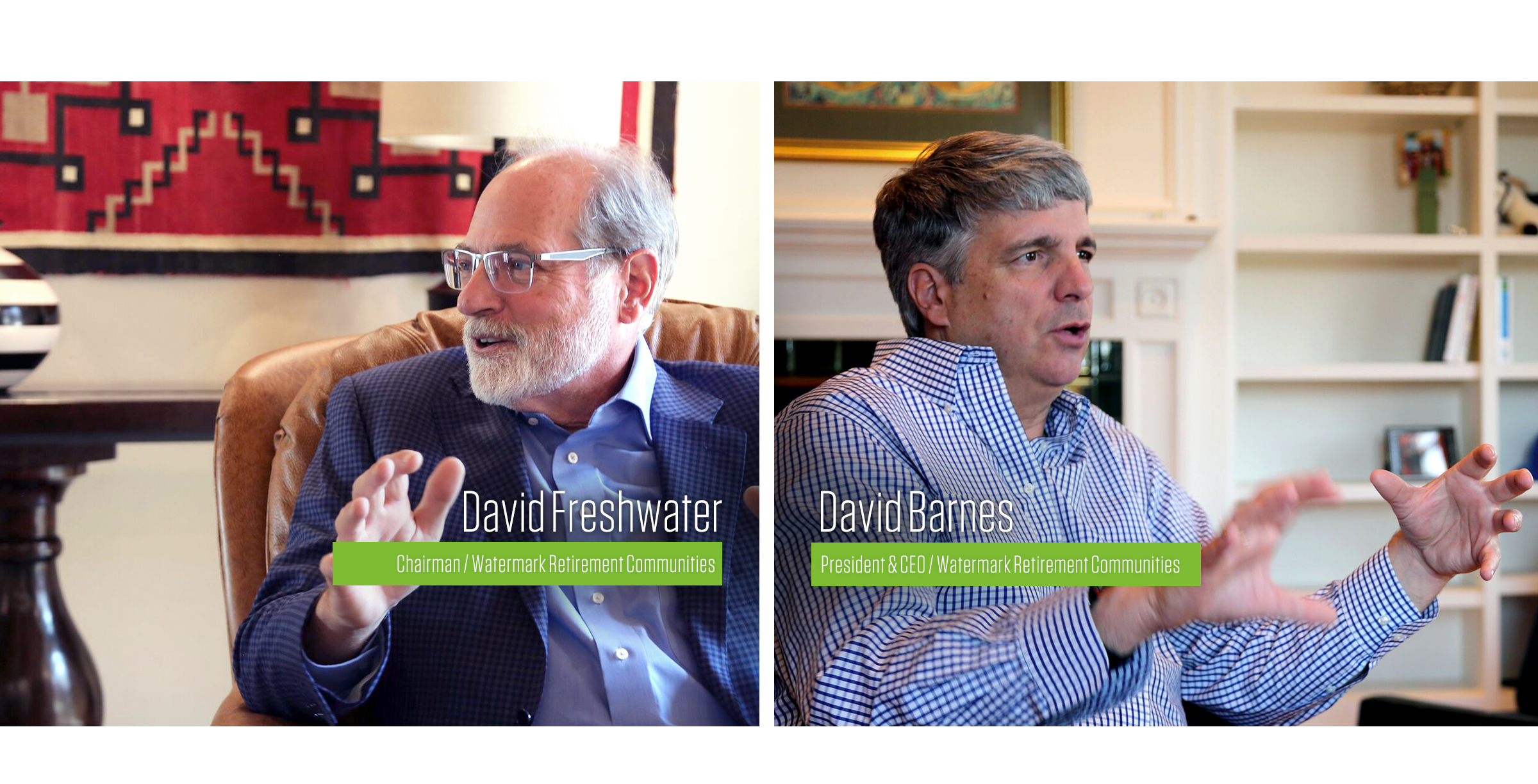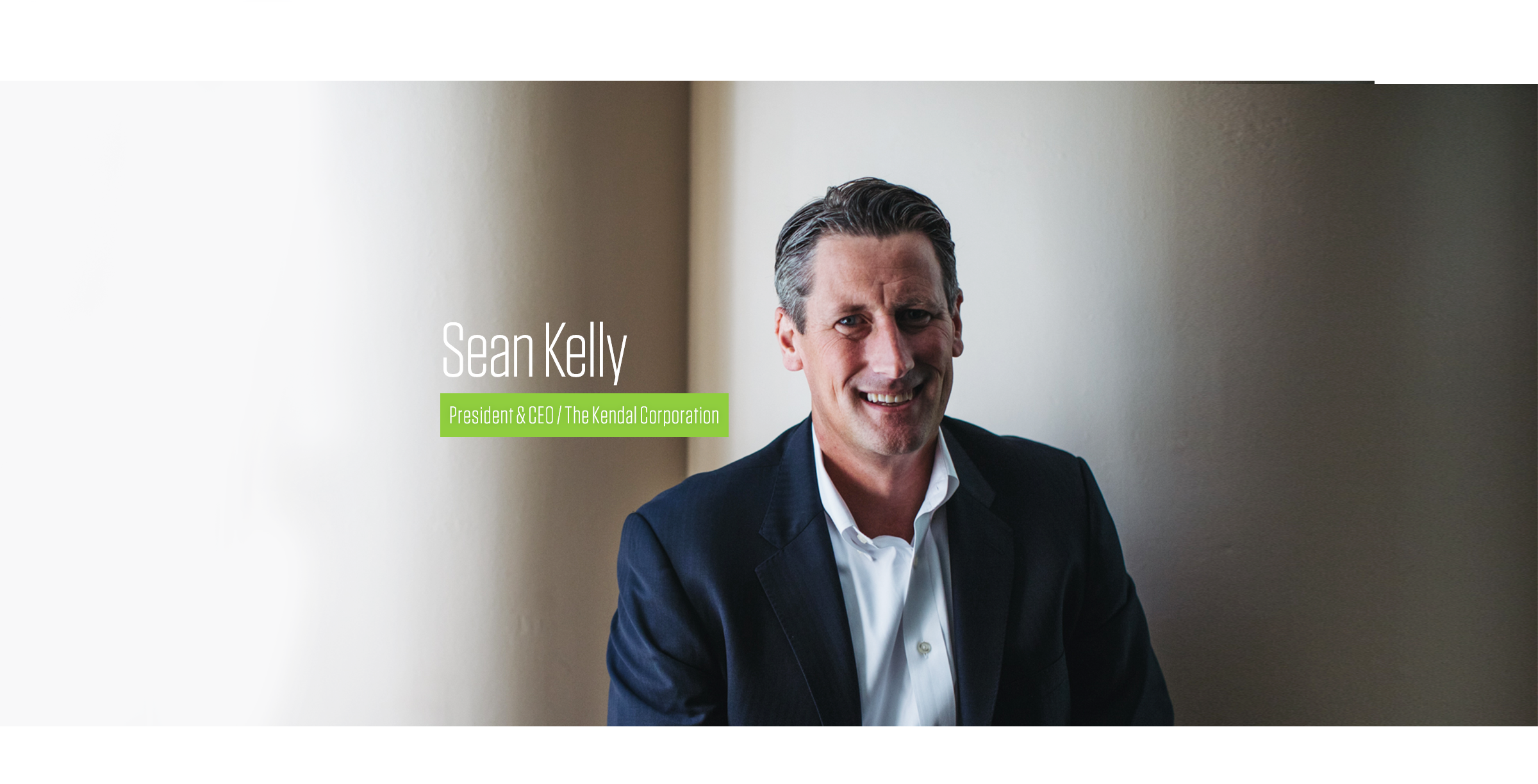Meet Dan Hermann, head of investment banking for Chicago-based specialty investment bank Ziegler. The company is credited with providing financing expertise to hundreds of senior living clients, particularly in the non-profit sector. Hermann has spent nearly his entire 30-year career with Ziegler, during which he has learned a thing or two about senior housing. We sat down with Dan to learn about weathering the recessionary times, why non-profit senior living is on the cutting edge, and what it means to be a leader.
I’ve been doing a lot of research on you, and I’m having a hard time finding what you did before Ziegler. How did you get into the industry and what attracted you to it?
You won’t find much about me before Ziegler because I’ve been here going on 29 years, after spending one year at Price Waterhouse.
I grew up in St. Louis and went to Catholic grade school and then Bishop DuBourg, which is one of the many Catholic high schools that is big in soccer. A lot of kids come out of St. Louis to play soccer in college, so I ended up playing at Illinois State on a small scholarship because my parents had moved to Decatur, Illinois senior year during [the] recession [of that time]. That actually led to kicking on the football team, too.
I’m giving you that background because I had always planned to move back to St. Louis and work for somebody like A.G. Edwards or Stifel and have Cardinal season tickets. But all roads from Illinois state schools lead to Chicago, and then I learned how big the Chicago business market is. I got an internship with Price Waterhouse, double majored in finance and accounting and said, ‘Why don’t I just go to Price Waterhouse first, instead of trying to find a finance job, and then transfer back to St. Louis?’
This was in the mid-80s, and I met my wife at ISU. She gave me a head fake. I thought she was from St. Louis because she had gone to Catholic high school there, but really her parents were from Chicago and they had moved back.
I’m really a finance guy at heart and actually stumbled upon Ziegler through some Price Waterhouse connections. That was right when analysts were starting to get hired at investment banking because the PC had just been invented. I was the first analyst at Ziegler as they started to say, “We need an analyst.” Can you imagine investment banking being done without analysts? It’s pretty amazing how that got done, and it’s why everyone can move with so much speed now—we’ve got tons of analysts.
I had stumbled upon Ziegler, but saw that they did health care with a lot of Catholic hospitals, and hospitals in general, and that made sense. They also did this new thing called ‘senior living,’ but nobody used those words back then. We were one of the [companies] that coined the term. We had financed about a third of the hospitals in the country and I said, ‘Well this makes sense… get into investment banking and work for a small firm serving health care with a service orientation. That was 28 and a half years ago, going on 29 years in May.
As a first analyst, I grew up within the firm. We hired lots of folks in health care and we rarely lose senior living bankers. The hospital markets went on to consolidate rapidly, and it just totally changed the landscape. We still do a significant number for the top 10 in health care.
How has the industry changed from when you got into it 28-29 years ago to today? What would you say are the biggest differences?
What’s changed is the growth and maturity of the non-for-profit side, and that’s a significant practice here where we’re a leader. Maturation of that and the project financing market, very similarly to the health care market, followed behind by 5 to 20 years on just about every trend—for example, on the growth of multi-facility providers into co-obligated groups. We now have the most rated senior living organizations on the non-for-profit debt side, very similar to health care. It’s a mature, sophisticated market and that has led to a lot of activity around consolidation.
A dramatic growth of all elements of the for-profit marketplace, both provider growth and financing alternative and financing providers, is what’s changed the most. It has gone from a cottage industry to being a mature sector on both the non-for-profit and the for-profit side and that’s now leading to gradual consolidation even though we have demographic growth. — Dan Hermann
A dramatic growth of all elements of the for-profit marketplace, both provider growth and financing alternative and financing providers, is what’s changed the most. It has gone from a cottage industry to being a mature sector on both the non-for-profit and the for-profit side and that’s now leading to gradual consolidation even though we have demographic growth.
What’s your definition of leadership?
Lead by example and put motivated people in a position to succeed. In investment banking, our team members are all highly competent, motivated people. Once a common goal is identified, put them in position to perform and execute while holding to high quality service model. Ziegler investment banking is very client service, long-term relationship focused.
How important do you think technology is to the industry today? Do you think the industry as a whole is investing enough?
It’s extremely important. We’ve had a major commitment to health care, senior living and corporate finance. For health care, post acute, and senior living related corporate finance, technology is a huge piece. Virtually all of the service companies that are growing are using technology as part of the platform. Even the more advanced home health organizations are making investments in technology around EMR or mobile health with their caregivers, as we speak. At Ziegler, we recognize that, and we said, ‘What’s the best way to capture that? Getting back to the fund business, post-crisis.’ We raised $26 million from 70 not-for-profit post acute and senior living providers, one of which was a major health system with a big acute presence.
That’s kind of surprising, considering a lot of people say the non-profits aren’t necessarily adapting to technology as fast as the for-profits.
[That’s not true.] The non-for-profit sector is the way that all of the books that are out there have laid it out, and that’s the right way to think about it. With private sector bonds and capital coming in, the private sector can accelerate and replicate at a much faster pace after things have been innovative. One of the many reasons that the 70 folks were excited about the fund, is it was a chance to have a front seat at the table of innovation. To date, the fund has made nine investments. We’re looking for transformative service companies. And the transformative ones are using technology.
These are nonprofits that are looking not only to invest but to hopefully implement some of these?
Correct. We are already piloting with some of the companies that demo-ed. Many of them are using products of the companies we’ve invested in.
One company that’s easy to mention, because you and I are from Chicago, is CareMerge. This ties into what’s happening in Chicago and why you and I can’t get down the streets in traffic from the north side of town. CareMerge came out of the [digital startup hub] 1871 and now has spun out into their own offices. They’re one of our portfolio companies. We’re one of four private equity firms to invest in a $4 million capital round, and their client base is not-for-profit and for-profit—it’s an even mix. The CareMerge product is the technology enabled care organization on your iPad or your mobile device, as well as a social engagement module at a CCRC. It’s having great success across both of the spectrums. So while the non-for-profits funded it, it’s a product being used by both markets—which is what everyone absolutely expected. I’m super excited about how that’s playing out at Ziegler, and we fully expect to do fund 2 and fund 3 in a much larger way. There will be ways that the for-profit provider base can participate in that.
Let’s shift here. What is the biggest risk you’ve taken in your career to date?
The biggest risk I’ve taken was staying at a smaller boutique firm, when I’ve had multiple opportunities to leave for larger brand-name firms. There was a frequent re-confirmation that by staying at a dedicated, focused boutique firm made up of good people, including myself, I was in a better position to add value and sustain than moving to a larger brand-name firm where at the end of the day there tends to be more turnover over time.
There is no substitute for hard work and building a team of like-minded highly motivated people that want to serve clients. — Dan Hermann
What’s the best piece of advice you’ve gotten during your career?
There is no substitute for hard work and building a team of like-minded highly motivated people that want to serve clients.
What’s the biggest challenge that Ziegler has faced and how did you overcome it?
The biggest challenge Ziegler has faced was the crisis of 2008-9 when multiple financial firms went under. Because we were a focused boutique firm with a conservative balance sheet and a focus on customer service, we were able to weather the storm with our multiple client bases when other firms were not able to sustain that.
In that storm, we were a very successful remarketing agent for variable rate demand bonds, and we serviced our re-marketing book extremely well even if bonds were being put back. This is very technical, but bonds were being put back to the remarketing agent, so we carried a substantial remarketing book through the crisis when bonds were put back by banks; meaning they didn’t extend the LC. Our clients greatly appreciated that, and that was achieved through intense focus over a three-month period.
When it comes to attracting talent to the industry, I think you’re a great person because this was the intro to your career. Say I’m about to graduate college; what would your pitch be to me on why I should look at senior living as a career?
I routinely tell young people, ‘Look at this sector to what your strength is,’ whether it’s financial services, finance-oriented, or more real estate-oriented, i.e. a REIT or an investment bank like ours.
Or, the operator side has a huge demand for talent, so there are numerous, numerous, numerous operators now that you could start with and you’re going to have great flexibility in your career if you can grow and add value.
Third are the service companies. We serve the investment community, the provider community, and then the service companies. There’s an enormous need for salespeople while all these concepts are coming out, [and deciding] what they do with the private equity. Almost every single one of them will use a portion for growing their business development, which means hiring salespeople. There are not enough business development people across all of the emerging health care technology spaces. It’s a wonderful career opportunity.
Do you think the industry currently does a good job taking those people on the front lines, say an executive director or something like that, and giving them a pass to climb as far as their provider goes?
My sense is yes. I know that it’s a core focus of all of the associations. At LeadingAge, they formed the Leadership Academy. They’ve done a wonderful job of picking up middle-career folks. If you went and studied their track record, they’re doing wonderfully well on the non-for-profit side.
On the for-profit side, it’s our understanding that numerous firms are out progressively recruiting and setting up administrator training programs. LCS is one example. Senior lifestyle has done that. I’m sure if we polled all of the operators of size, [we’d find] they’re doing something around recruiting and training young folks. I suspect where we’re lacking is at the university level. The universities that are in the business are doing a good job, such as the Erickson School and others like that. I’m sure we’ll see more universities adding the senior living specialty, given the market demand.
Is that an important part of the process? Would that help?
It has to. It’s bringing awareness at a younger age to this opportunity. There are lots of universities with health care programs. I haven’t had the time to go survey in the health care administration world [but it would be interesting to know] how many of those have added a senior living or post-acute subset to that. You would think they’d be doing that.









